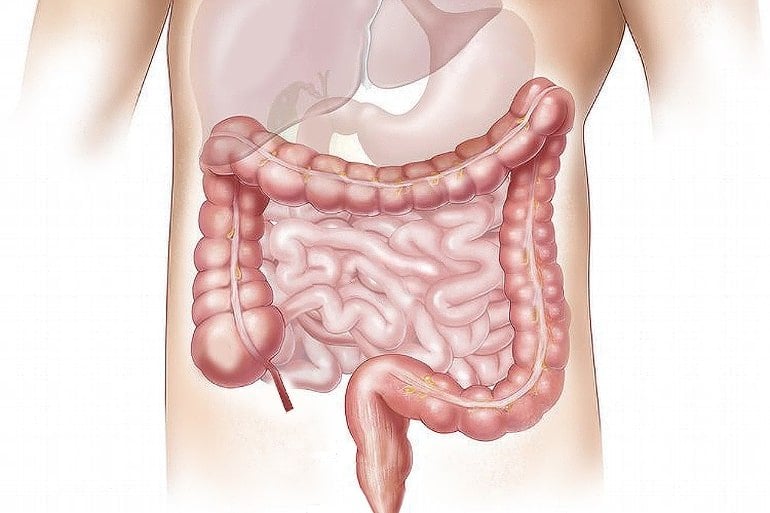Learn about brain health and nootropics to boost brain function
Poor Gut Health May Drive Multiple Sclerosis, but a Better Diet May Ease It

Summary: Researchers found significantly higher levels of Lcn-2 levels in the stools of patients with multiple sclerosis. This marker correlated with reduced bacterial diversity and increases in other markers of intestinal inflammation. Bacteria that ease inflammatory bowel disease were also reduced in MS patients with high fecal levels of Lcn-2 levels.
Source: Rutgers University
Researchers from Rutgers Robert Wood Johnson Medical School’s Department of Neurology have traced a previously observed link between microscopic organisms in the digestive tract—collectively known as the gut microbiome—and multiple sclerosis (MS).
Their study in genetically altered mice and people supports the belief that dietary adjustments such as increased fiber may slow MS progression, and they are already working to test the effect of dietary interventions in MS patients.
“Unhealthy dietary habits such as low fiber and high fat consumption may have contributed to the steep rise of MS in the US,” said Kouichi Ito, an associate professor of neurology and senior author of the study published in Frontiers in Immunology . “In nations where people still eat more fiber, MS is far less common.”
MS is a degenerative condition in which the body’s immune system attacks the protective covering of nerves in the brain, spinal cord and eyes. According to the National Multiple Sclerosis Society, it affects nearly 1 million adults in the United States.
Several previous studies have differentiated the microbiomes of MS patients and healthy subjects, but, Ito said, they all noted different abnormalities, so it was impossible to tell what change, if any, was driving disease progression.
The Rutgers study, which was led by research associate Sudhir Kumar Yadav, used mice engineered with MS-associated genes to trace the link between alterations in the gut bacteria and an MS-like condition called experimental autoimmune encephalomyelitis (EAE).
As these mice matured—and simultaneously developed EAE and a gut inflammatory condition called colitis—the researchers observed increased recruitment of inflammatory cells (neutrophils) to the colon and production of an anti-microbial protein called lipocalin 2 (Lcn-2). MS is a degenerative condition in which the body’s immune system attacks the protective covering of nerves in the brain, spinal cord and eyes. Image is in the public domain The study team then looked for evidence that the same process occurred in people with MS and found significantly elevated Lcn-2 levels in patient stool. This marker correlated with reduced bacterial diversity and increased levels of other markers of intestinal inflammation. Additionally, bacteria that seem to ease inflammatory bowel disease were reduced in MS patients with higher levels of fecal Lcn-2.
The study suggests that fecal Lcn-2 levels may be a sensitive marker for detecting unhealthy changes in the gut microbiome of MS patients. It also provides further evidence that high-fiber diets, which reduce gut inflammation, may help fight MS.
Rutgers is looking to test that hypothesis soon. Suhayl Dhib-Jalbut, a co-senior author of the paper who heads the medical school’s neurology department, is recruiting patients with MS for a trial that will determine how their microbiomes and immune systems are affected by a high-fiber supplement developed by Rutgers Microbiologist Liping Zhao. About this multiple sclerosis and microbiome research news
Author: Press Office
Source: Rutgers University
Contact: Press Office – Rutgers University
Image: The image is in the public domain
Original Research: Open access.
“ Fecal Lcn-2 level is a sensitive biological indicator for gut dysbiosis and intestinal inflammation in multiple sclerosis ” by Sudhir K. Yadav et al. Frontiers in Immunology
Abstract
Fecal Lcn-2 level is a sensitive biological indicator for gut dysbiosis and intestinal inflammation in multiple sclerosis
Multiple Sclerosis (MS) has been reported to be associated with intestinal inflammation and gut dysbiosis.
To elucidate the underlying biology of MS-linked gut inflammation, we investigated gut infiltration of immune cells during the development of spontaneous experimental autoimmune encephalomyelitis (EAE) in humanized transgenic (Tg) mice expressing HLA-DR2a and human T cell receptor (TCR) specific for myelin basic protein peptide (MBP87-99)/HLA-DR2a complexes.
Strikingly, we noted the simultaneous development of EAE and colitis, suggesting a link between autoimmune diseases of the central nervous system (CNS) and intestinal inflammation.
Examination of the colon in these mice revealed the infiltration of MBP-specific Th17 cells as well as recruitment of neutrophils.
Furthermore, we observed that fecal Lipocalin-2 (Lcn-2), a biomarker of intestinal inflammation, was significantly elevated and predominantly produced by the gut-infiltrating neutrophils.
We then extended our findings to MS patients and demonstrate that their fecal Lcn-2 levels are significantly elevated compared to healthy donors (HDs).
The elevation of fecal Lcn-2 levels correlated with reduced bacterial diversity and increased levels of other intestinal inflammation markers including neutrophil elastase and calprotectin.
Of interest, bacteria thought to be beneficial for inflammatory bowel disease (IBD) such as Anaerobutyricum, Blautia, and Roseburia , were reduced in fecal Lcn-2-high MS patients.
We also observed a decreasing trend in serum acetate (a short-chain fatty acid) levels in MS Lcn-2-high patients compared to HDs. Furthermore, a decrease in the relative abundance of Blautia massiliensis was significantly associated with a reduction of acetate in the serum of MS patients.This study suggests that gut infiltration of Th17 cells and recruitment of neutrophils are associated with the development of gut dysbiosis and intestinal inflammation, and that fecal Lcn-2 level is a sensitive biological indicator for gut dysbiosis in multiple sclerosis.
Read more at neurosciencenews.com